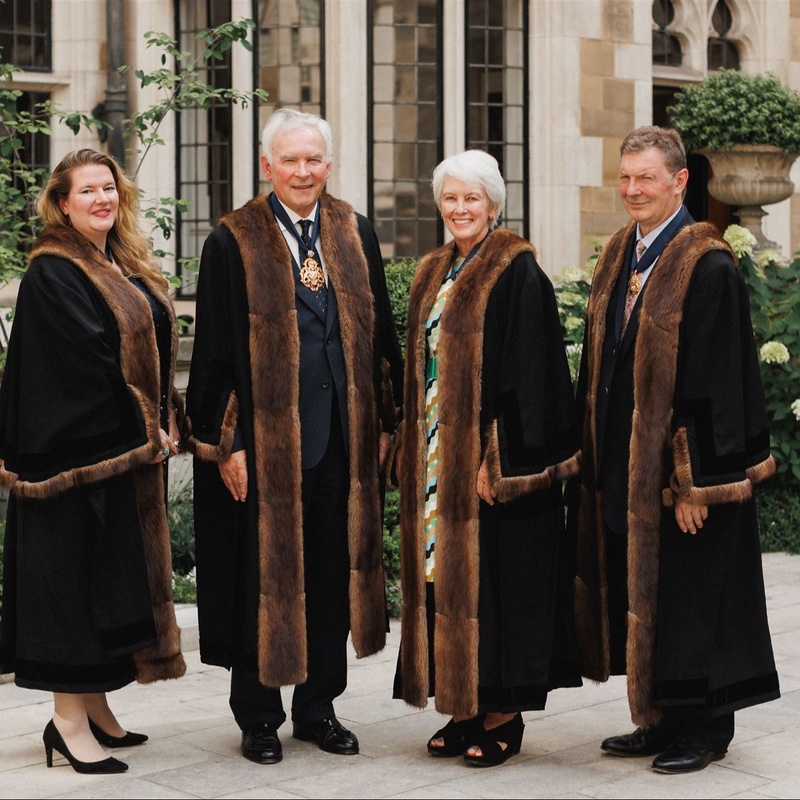

The Master's Charity for 2020: Meet The Feast
19 November 2020
Each year, the Master Merchant Taylor selects a charity which they believe best evokes the ethos of Merchant Taylors'. This year, Master Jane Hall has selected The Feast as her chosen charity. Find out more about the charity and the work they do below.
Who are The Feast?
The Feast is an award-winning charity working with young people of different faiths to help them make friends, be confident in their identity, embrace difference and flourish alongside one another in peaceful and inclusive communities.
Tell us about The Feast’s origins
The charity started in Birmingham in 2009 against the backdrop of an increasingly diverse UK and now also operates in Bradford, Luton and East London. It has also inspired work in Australia, Egypt, Latvia, Lebanon, Sudan, Switzerland and the USA.
Many urban neighbourhoods have seen considerable demographic changes, where minority groups have forged their own distinct communities of shared cultures and faith. Although very natural, it can lead to fear and misunderstanding. Unfortunately, many young people today grow up living parallel lives with little meaningful interaction with people different from themselves. This isolation and the possibility for conflict is even greater for young people growing up in areas of social and economic disadvantage.
The Feast founder, Dr Andrew Smith, worked in the early 2000s as a Christian youth worker in Birmingham secondary schools. In bringing young people of different faiths and cultures together to talk without arguments over whose beliefs were the right ones, he developed The Feast’s guidelines for safe and respectful discussions. The framework enables young people to share their own beliefs and listen to peers discuss theirs. It also meant that they were not spokespersons for their entire faith or culture, freeing them to get to know each other as individuals.

How does the Feast operate?
The Feast holds ‘youth encounters’, activities that create common experiences. They can range from cooking to abseiling and push youngsters out of their comfort zone, often with peers that they don’t know. After the fun activity, the young people share food and take part in a dialogue using The Feast’s guidelines on different topics. Numbers are kept small (8-12) with equal numbers from different faiths (and none) and cultures.
The charity also runs school and community-based programmes with young people as well as a one-year youth leadership course. The Feast also provide training adapted for schools, faith and community settings on how to use The Feast’s dialogue guidelines.

How does The Feast differ from other charities?
The Feast is unique in its triple focus on identity formation, interfaith dialogue and peace-making. All are critical in supporting the next generation to hold genuine dialogue and friendships across any social divide.
Many youth workers and schools are hesitant to engage on the subject of faith, even though for many, especially those from minority ethnic backgrounds, faith is central to their lives. The Feast offers a safe way to acknowledge the importance of faith to many but also how to embrace different beliefs and opinions.
What is the impact of The Feast?
Through our programmes young people gain confidence to articulate their beliefs and to engage positively with those whose beliefs differ. The youth encounters allow them to dispel stereotypes and build genuine friendships. In overcoming prejudices and fears, our young people often become the best advocates to family and friends to engage positively with others who are different and challenge community prejudices and fears.
One example of this came in May 2017. A group of teenage boys from an economically-deprived area came to us through their local church group. They were heavily influenced by the far right. Through the youth encounters programme, they met with Muslim teenagers for over six months. In the middle of that period was the Manchester Arena bombing on 22 May - because of the friendships they had already formed and the frank conversations they had already had, one of the Muslim boys asked one of the Christian boys if he hated all Muslims as a result of the bombing. The other boy answered that he would have before the youth encounters programme, but now he knew that not all Muslims were like that. He went home and said the same thing to his dad, who was a far-right supporter (and who has since changed his own far right rhetoric on social media).
What is next for The Feast?
With Covid-19 disproportionately affecting people across a number of social divides, The Feast is resolved to engage with more young people through its work in schools. To this end, alongside our regular school programmes we have developed a new short-term schools project to support students transition from their very different experiences of lockdown back into their school community and enable them to work together to enact hopes they collectively have for the future.
In Tower Hamlets, we hope to systematically embed The Feast’s dialogue framework in all secondary schools within the area; have a community hub that act as a place where more encounters and programmes can take place and to expand our one-year youth leadership programme.

